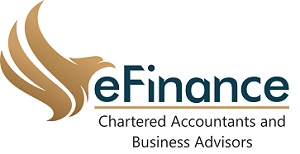Operating a small business is an exciting journey, but it has its fair share of difficulties. Accounting is one of the most often ignored yet absolutely vital fields that leads to success.
From tax concerns to cash flow challenges, one financial error can lead to long-term consequences. It’s easy to think that so long as the company is generating money, all is well, but bad accounting may rapidly transform a successful company into a financial catastrophe.
Whether you operate a small business in London, Ontario, or anywhere else, knowing typical accounting errors and how to prevent them is essential.
An Accounting Checklist for Small Businesses
Combining Personal and Business Finances
Using your personal bank account for company costs is one of the most frequent and harmful errors small business owners make. Seems easy, no? But this approach confuses, disturbs your tax reporting, and makes it hard to obtain an exact view of the financial state of your company.
Ways to prevent it
Open a specific company bank account and maintain your personal finances apart. Tax season becomes much simpler since you will have a clear division of your business-related revenue and costs.
Having well-organized financial records will also be rather important should you ever be audited or apply for a loan. Should you be in London, Ontario, locating a personal tax accountant or a small business accountant that knows local rules would be very beneficial in correctly establishing your financial systems.
Failing to Track All Expenditures
Particularly the tiny, daily expenses that don’t seem important at the moment but mount up fast, small firms sometimes forget to monitor all their costs. These costs range from office supplies to mileage and can be deducted at tax time, saving you possibly hundreds or even thousands of dollars.
Ways to prevent it
Purchase accounting tools allowing you to quickly monitor spending as they happen. Some tools let you take digital receipts and save them electronically, so you don’t have to stress about misplacing them. Maintain thorough records of all costs and classify them to enable your claiming of every allowable deduction at tax time.
Faulty Cash Flow Forecasts
Poor cash flow management ranks among the top reasons companies fail. Small companies sometimes neglect to monitor when their money is coming in and when it is going out, which can cause unplanned cash depletion. Companies run on cash flow; without correct forecasts, planning for sluggish months or unanticipated costs is quite challenging.
Ways to prevent it
Review your cash flow often and make sure your projections are correct. Design a cash flow statement comprising income—such as sales—and predicted expenses—such as rent, payroll, etc. Your estimates should be modest; underestimating revenue or overestimating expenses will help you to better understand what to expect. Hiring an accountant in London, Ontario will help you keep good cash flow forecasts if numbers aren’t your passion.
Neglecting to Consider Taxes
If you believe taxes are something you just have to consider once a year, reconsider. Many small business owners fail to plan for taxes, and when tax season arrives, they receive an unexpected invoice. This can cause problems with cash flow and the anxiety of rushing to pay.
Ways to prevent it
Consult a tax expert to help you budget your yearly tax obligations. Set aside a percentage of your income for taxes—ideally, between 20-30%, depending on your income and expenditures. To prevent any unexpected tax liabilities, pay projected quarterly taxes if you are self-employed. A personal tax accountant in London can also assist you in making use of tax deductions and credits possibly available to small company owners.
Not Paying Yourself a Wage
Small business entrepreneurs may be tempted to pay themselves as an afterthought, particularly when the company is new and cash flow is limited. On the other hand, this could create personal financial pressure and make it hard to monitor your actual business income.
Ways to prevent it
Based on the performance of your company and your position, establish a fair pay for yourself. Though you cannot afford a large salary, be sure you are consistently compensating yourself. This guarantees that you are correctly recording your revenue as a business cost and helps you to more control your personal spending. Talking to a personal tax accountant can enable you to choose a fair pay that suits your company structure.
Failing to Maintain Appropriate Tax Deduction Records
Though many neglect to use them since they lack appropriate paperwork, every small business owner qualifies for several tax deductions. Office supplies, business-related travel, and home office expenses are all deductible, but only if you have the appropriate documentation.
Ways to prevent it
Maintain records of business-related expenses, invoices, and receipts. For tax season, preserve digital copies of receipts using accounting software or apps that assist you remain organized. If you run your car for company reasons, tracking mileage is also quite important. An accountant can make sure you’re maximizing your savings and assist you find all the tax deductions you qualify for and guarantees.
Ignoring Retirement Savings
Though you might not have the luxury of an employer-sponsored retirement plan as a small business owner, ignoring retirement savings completely would be unwise. Many entrepreneurs concentrate only on the company and neglect to prepare for their own future.
Ways to prevent it
Establish a retirement account as early as feasible. Depending on your circumstances, Canadian choices such as an RRSP (Registered Retirement Savings Plan) or a TFSA (Tax-Free Savings Account) can help you save for retirement and reduce your taxable income.
Talk to your London, Ontario accountant or a financial planner to determine the ideal retirement plan for your company and personal objectives.
Not Reconciling Accounts
Though it could appear boring, reconciling your accounts—comparing your financial records with your bank statements to make sure everything matches—is a required activity. Neglecting to do this often could result in mistakes, skipped payments, or perhaps unnoticed fraud.
Ways to prevent it
Reconcile your accounts at least once a month by following a set method. This will enable you to find errors early, stop illegal transactions, and make sure your financial reports are correct. A small business accountant can handle the reconciliation process for you if you’re feeling overworked, allowing you more time for other crucial activities.
Ignoring Required Professional Assistance
Though it could backfire, it’s understandable to want to manage all the money for your company yourself to cut costs. Tax rules and accounting are complicated; even a tiny error can have significant effects. Not seeking advice from a professional when required could ultimately cost you more.
Ways to prevent it
When in need, don’t be afraid to ask for professional assistance. A decent accountant in London, Ontario, particularly one with experience dealing with small enterprises, can assist you establish processes, control your records, and negotiate tax rules.
They may also provide great guidance on how to expand your company in a financially viable manner. Knowing your taxes are submitted properly and that you are following all rules, working with a personal tax accountant can provide you piece of mind.
Wrapping Up
Steering clear of these typical accounting errors could greatly affect the performance and durability of your small company. Although managing the books oneself could appear to save money, the possible traps are too significant to dismiss. You will be putting your company up for a good financial future by segregating personal and corporate finances, maintaining correct records, preparing for taxes, and looking for professional assistance as required.
Should you be unclear on where to begin, think about contacting a knowledgeable London, Ontario accountant who can assist you in navigating these vital processes. Caring for your company’s finances today will spare you from future hassles, allowing you to concentrate on what actually counts—expanding your company and reaching your objectives.






